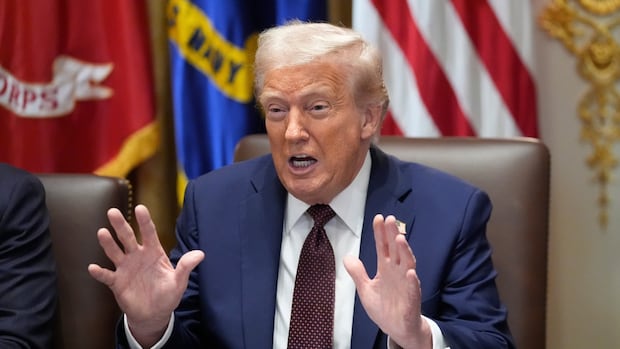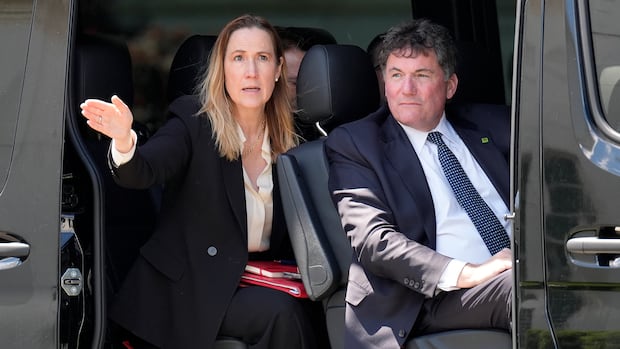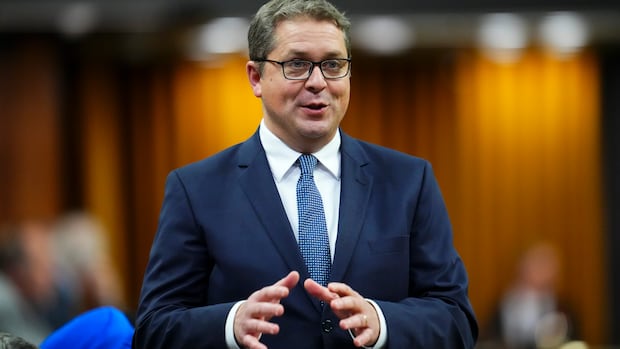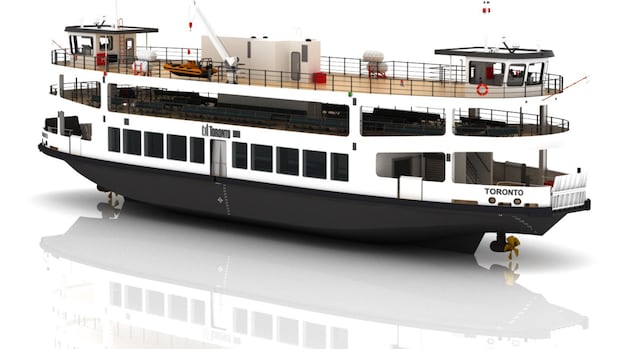A U.S. federal appeals court ruled on Friday that many of U.S. President Donald Trump’s tariffs are illegal — but it allowed for the levies to remain in place as the case likely makes its way to the U.S. Supreme Court.
The United States Court of Appeals for the Federal Circuit found that the “Liberation Day” tariffs and his fentanyl-related duties exceeded the powers of the national security statute he used to impose the levies.
“It seems unlikely that Congress intended to … grant the president unlimited authority to impose tariffs,” the judges wrote in a 7-4 ruling.
“The statute neither mentions tariffs (or any of its synonyms) nor has procedural safeguards that contain clear limits on the President’s power to impose tariffs.”
The president in a social media post said “ALL TARIFFS ARE STILL IN EFFECT!” and called the court “highly partisan.”
A federal appeals court has ruled that most of Donald Trump’s tariffs overstepped the emergency powers he used as president. Former U.S. district court judge Shira Scheindlin weighs in.
“If these Tariffs ever went away, it would be a total disaster for the Country,” Trump said in a post soon after the decision came down. “It would make us financially weak, and we have to be strong.”
The Liberty Justice Center, which represented some of the businesses fighting the duties, said in a post on social media that “the president cannot impose tariffs on his own.”
Shira Scheindlin, a former U.S. district court judge, told CBC News that the tariffs issue is just the latest example of Trump trying to extend and flex his executive power.
“This is yet another separation of powers issue that we’re hearing over and over again with this president … he is doing things that Congress should be doing,” Scheindlin said.
She predicts the Supreme Court will take on the case, but declined to speculate on how they’d rule, only noting, “This Supreme Court has been very deferential to this theory called ‘the unitary executive,’ which means that the president has the broadest of powers to do what he thinks is in the nation’s interest.”
International Economic Emergency Powers Act
Trump used the International Economic Emergency Powers Act of 1977 to hit nearly every country with tariffs. The act, usually referred to by the acronym IEEPA, is a national security statute that gives the U.S. president authority to control economic transactions after declaring an emergency.
IEEPA doesn’t mention the word “tariff” and the U.S. Constitution gives power over taxes and tariffs to Congress.
The Center said “IEEPA does not give him unlimited, unilateral tariff authority.”
“This ruling protects American businesses and consumers from the uncertainty and harm these unlawful tariffs have cause,” it said.
White House spokesperson Kush Desai said in a statement to The Canadian Press that “President Trump lawfully exercised the tariff powers granted to him by Congress to defend our national and economic security from foreign threats.”
“The president’s tariffs remain in effect, and we look forward to ultimate victory on this matter,” Desai said.
‘Waiting game’ for Canada
Trump has relied on tariffs to realign global trade since his return to the White House and the ruling could upend his plans.
The president has claimed that his steep tariffs on imports from around the world will accomplish many things: the restoration of American manufacturing, trade deals on the United States’ terms and mountains of cash for the federal government.
Trump hit Canada with economy-wide duties in March after he declared an emergency at the northern border related to the flow of fentanyl. He partially paused levies a few days later for imports that comply with the Canada-U.S.-Mexico Agreement on trade.
Minister for Canada-U.S. Trade Dominic LeBlanc says ‘a constructive, lengthy meeting took place this morning’ with U.S. Commerce Secretary Howard Lutnick four days after Prime Minister Mark Carney dropped reciprocal tariffs on some U.S. goods. The Power Panel discusses the politics around Canada’s ongoing attempts to finalize a U.S. trade deal.
Trump increased the tariffs on Canada to 35 per cent at the start of August, with the White House citing fentanyl and retaliatory tariffs as justification for the increase. U.S. government data shows a minuscule volume of fentanyl is seized at the northern border.
Canada-U.S. Trade Minister Dominic LeBlanc met with U.S. Commerce Secretary Howard Lutnick in Washington this week and said progress was made — but Canadian officials have cautioned it’s unlikely they’ll walk away without duties.
Ottawa has said it’s looking for a bilateral agreement to ease pressures from tariffs on steel, aluminum, copper and automobiles. Trump used different powers under the Trade Expansion Act of 1962 to enact those duties.
Lawrence Herman, an international trade lawyer and former Canadian diplomat, told CBC News that Canada is in a “waiting game” in regards to the tariffs until the likely Supreme Court case is decided.
“In the meantime, [there’s] a lot of uncertainty, a lack of clarity,” he said.
Trump took his trade war to the world in April with duties on nearly every country, saying America’s trade deficits amounted to a national emergency.








